   
CEO Picks - The best that international journalism has to offer!
 S30 S30Mottainai: In Japan, creativity is key to a no-waste ideal   The breezy fishing village of Murakami, only three hours by train from Tokyo, feels light-years removed from the hubbub of the world's largest city. I've come to the frozen-in-time castle town for respite from the rush and roar of urban Japan and to dine at Yururi, a renowned restaurant inside an inn once patronised by the 17th-Century poet and Zen master Basho. In a dining room as serene as a Zen meditation hall, I relish a dozen distinct salmon delicacies presented like jewels on a lacquered tray. Pickled salmon milt. Crunchy, flash-fried skin. A pâté-like treat made from liver. The parade of briny bites is a symphony of flavours and textures, and every part of the fish, from the coveted o-toro (luxurious belly fat) to the organs, finds delicious expression. Even the bones and teeth are rendered into an umami-laden gel to be eaten atop rice. The meal – an edible ode to silky, orange fish flesh – beautifully expresses the Japanese ideal of mottainai, finding creative ways to eliminate waste.
Continued here
|
 S1 S1Are Customers Lying to Your Chatbot?   Automated customer service systems that use tools such as online forms, chatbots, and other digital interfaces have become increasingly common across a wide range of industries. These tools offer many benefits to both companies and their customers — but new research suggests they can also come at a cost: Through two simple experiments, researchers found that people are more than twice as likely to lie when interacting with a digital system than when talking to a human. This is because one of the main psychological forces that encourages us to be honest is an intrinsic desire to protect our reputations, and interacting with a machine fundamentally poses less of a reputational risk than talking with a real human. The good news is, the researchers also found that customers who are more likely to cheat will often choose to use a digital (rather than human) communication system, giving companies an avenue to identify users who are more likely to cheat. Of course, there’s no eliminating digital dishonesty. But with a better understanding of the psychology that makes people more or less likely to lie, organizations can build systems that discourage fraud, identify likely cases of cheating, and proactively nudge people to be more honest.
Continued here
|
 S2 S2What Every CEO Needs to Know About the Cloud   Cloud computing is a sea change in the way companies use technology; it’s as inevitable and significant as the shift from steam power to electricity on the factory floor. Because criticisms of the cloud have gotten a lot of hype, however, many companies are hesitant to explore it. In this article McAfee, a principal research scientist at MIT’s Center for Digital Business, debunks commonly cited concerns about the cloud. When it comes to cost, reliability, and security, he says, the cloud promises to equal or better on-premise computing. Moreover, as the experiences of companies like 3M, the global contractor Balfour Beatty, and the consulting firm CSC show, cloud computing offers sizable benefits, such as improved productivity, easier collaboration, the ability to mine data for insights, and higher capacity without major capital investment.
Continued here
|
 S3 S3A Practical Guide for Marketers Who Want to Use GenAI   The risks around generative AI are real. But this does not necessarily justify inaction, nor does it require a blanket approach to generative AI where marketers either blindly take risks or avoid AI altogether. In fact, a promising way to navigate this is a nuanced approach for which marketers systematically identify areas to experiment with generative AI and areas to wait-and-see. This article introduces a four-step framework — the DARE (Decompose, Analyze, Realize, Evaluate) Framework — to move forward with generative AI transformation in marketing.
Continued here
|
 S4 S4Turning High-Potentials into Successful Leaders   Companies must take a more scientific approach to turning their raw talent into leaders, say three authors from Egon Zehnder, which has been measuring executive potential for 30 years. Begin by identifying which of seven key leadership competencies (results orientation, strategic orientation, collaboration and influence, team leadership, developing organizational capabilities, change leadership, and market understanding) are critical to your top roles. Next, assess employees’ potential by looking at five predictors of strong competencies (motivation, curiosity, insight, engagement, and determination) and then map people’s potential to role requirements to see how far they can go. Last, to help them get there, provide the right coaching and development opportunities.
Continued here
|
 S5 S5How the Best Teams Keep Good Ideas Alive   Many leaders feel stuck. They know that employee perspectives are crucial for retention and innovation, but they struggle to single-handedly create a culture where employees are empowered both to speak up with ideas and to see them through — where it’s the good idea that matters, rather than the role or status of the person who initially raises it. Based on their research on “voice cultivation” — the collective, social process through which employees help lower-power team members’ voiced ideas reach implementation — the authors have identified several tactics leaders and their teams can use to help ensure good ideas make it to implementation: amplifying, developing, legitimizing, exemplifying, and issue-raising.
Continued here
|
 S6 S6
 S7 S7The Outsized Benefits of "Minimalist" Leadership   Although we have known about the benefits of servant leadership for a long time, many CEOs are still far from putting it into practice. While minimalist leadership may feel counterintuitive and uncomfortable, those who dare to practice it will gain an edge in industries requiring engaged and innovative employees. They’ll also eliminate the bottlenecks that often happen when CEOs insist on retaining too much control. But the shift to it will require unlearning counterproductive practices more than learning new things. Finland, one of the least-hierarchical countries in the world, is at the forefront of the trend. This country could be considered a laboratory for the low-status, humble approach the author calls Nordic minimalist leadership. CEOs who practice it are less visible, try to avoid being the center of attention, and assert less control. They let employees shine, put the good of the company above their own egos, and ultimately build stronger and more-innovative businesses.
Continued here
|
 S8 S8How to Get the Honest Input You Need from Your Employees   Leaders often struggle to get complete, unfiltered information from the people around them. This wealth of unspoken information represents a great untapped resource for today’s leaders, and yet most remain at a loss for how to reliably access it. Common tactics for overcoming this problem, such as taking another’s perspective or reading their body language, simply aren’t sufficient. Research shows that if you want to learn what those around you really think, feel, and know, there’s only one reliable strategy: asking them. The author presents a five-step process for leaders to tap into the hidden insights of those around them.
Continued here
|
 S9 S9Becoming More Collaborative When Your Impulse Is to Be Territorial   Many leaders become territorial and overprotective of their teams, client relationships, and resources to preserve their ability to succeed. It’s not uncommon for talented leaders to compete internally with their peers for people, investment, and attention; in fact, it’s often that individual drive that made them successful in the first place. However, when you’re looking to scale your leadership and reach the C-suite, this “fend for yourself” mentality will stop you in your tracks. The author presents four strategies to help senior leaders redefine “winning” as a shared goal.
Continued here
|
 S10 S10Finding the Right Balance -- and Flexibility -- in Your Leadership Style   It’s an outdated idea that a leader should adopt a fixed leadership style that’s agnostic to the specific context in which he or she is operating. A single approach to leadership is not going to meet the myriad of challenges that today’s leaders face. Thus, rather than perfecting a “leadership sweet spot,” a leader needs to develop and broaden his or her “leadership sweet range.” The wider this range becomes, the more effective or versatile the leader will be. The authors identify seven core tensions between traditional and emerging leadership approaches and offer strategies for leaders looking to broaden their range.
Continued here
|
 S11 S11Talent Matters Even More than People Think   Why are some people more successful than others? Leaving aside luck, which equates to confessing that we don’t really know, there are really just two explanations: talent and effort. Talent concerns the abilities, skills, and expertise that determine what a person can do. Effort concerns the degree to which the person deploys their talents.
Continued here
|
 S12 S12Capture New Value from Your Existing Tech Infrastructure   Axiata Group, a Malaysia-based telecommunications conglomerate, created a promising new business by using APIs to allow small businesses in Sri Lanka and Bangladesh to use its technology assets to create over 90,000 services. Its experiences can help other incumbents figure out how to tap the potential of their technology assets.
Continued here
|
 S13 S13Creating New Market Space   When the market in which you compete gets overcrowded, innovating is the only way to break free from the pack. But how do you begin? Consider value innovation—a strategic concept Kim and Mauborgne introduced in their 1997 Harvard Business Review article. Value innovators create products or services for which there are no direct competitors—and use those offerings to stake out and dominate new market spaces. They don’t possess special vision or prescience; rather, they look across the conventional boundaries of competition for opportunities to provide breakthrough value for customers.
Continued here
|
 S14 S14First Make It Work, Then Rebrand It   Usually when companies merge, they get right to work on rebranding. In the case of airlines, the combined entity’s new logo quickly finds its way onto repainted planes, restyled uniforms, and fresh airport signage. But after Avianca and TACA merged—each with its own rich heritage, culture, and business—we took our time. In fact, we waited more than three years to put a new face on the company.
Continued here
|
 S15 S15Social Strategies That Work   Although most companies have collected lots of friends and followers on social platforms such as Facebook, few have succeeded in generating profits there. That’s because they merely port their digital strategies into social environments by broadcasting their commercial messages or seeking customer feedback.
Continued here
|
 S16 S16When Discussing Uncertainty, Highlight Opportunities for Your Employees   All the recent talk of uncertainty can leave employees feeling anxious, both about their current position and prospects. They may become reactive, defensive, and inward-looking, as if to insulate themselves from the effects of the uncertainty. Asking them to be resilient, flexible, and committed, as many leaders do, can create additional pressure and make things worse. What does it take for executives to manage uncertainty in a way that’s empowering to employees, rather than anxiety inducing? The author offers four strategies to help you frame uncertainty positively to encourage people to seize the opportunities it brings.
Continued here
|
 S17 S17Leaders as Decision Architects   Everyone from CEOs to frontline workers commits preventable mistakes—for example, underestimating how long it will take to finish a project or focusing too much on information that supports their current view. It is extraordinarily difficult to rewire the human brain to undo the patterns that lead to such mistakes. But there is another approach: Alter the environment in ways that encourage people to make decisions that lead to good outcomes.
Continued here
|
 S18 S18Drive Innovation with Better Decision-Making   Despite their embrace of agile methods, many firms striving to innovate are struggling to produce breakthrough ideas. A key culprit, according to the authors, is an outdated, inefficient approach to decision-making. Today’s discovery-driven innovation processes involve an unprecedented number of choices, from which ideas to pursue to countless decisions about how to conduct experiments, what data to collect, and so on. But these choices are often made too slowly and informed by obsolete information and narrow perspectives.
Continued here
|
 S19 S1913 Unlucky Mistakes in Managing Traumatic Change -- and How to Avoid Them   Turbulent times put leaders to the test. How people handle unwelcome surprises and unexpected blows to the best-laid plans can exacerbate a run of bad luck — or turn things in their favor. Traumatic change is hard enough without adding insult to injury. When crises occur, leaders need to know how to avoid the traps that make it harder to recover. Here are 13 common mistakes and some guidelines for avoiding them.
Continued here
|
 S20 S20The Elements of Good Judgment   Judgment—the ability to combine personal qualities with relevant knowledge and experience to form opinions and make decisions—is “the core of exemplary leadership,” according to Noel Tichy and Warren Bennis (the authors of Judgment: How Winning Leaders Make Great Calls). It is what enables a sound choice in the absence of clear-cut, relevant data or an obvious path. Likierman believes that a more precise understanding of what exactly gives someone good judgment may make it possible for people to learn and improve on it. He approached CEOs at a range of companies, from some of the world’s largest right down to start-ups, along with leaders in the professions: senior partners at law and accountancy firms, generals, doctors, scientists, priests, and diplomats. He asked them to share their observations of their own and other people’s exercise of judgment so that he could identify the skills and behaviors that collectively create the conditions for fresh insights and enable decision makers to discern patterns that others miss. As a result, he has identified six key elements that collectively constitute good judgment: learning, trust, experience, detachment, options, and delivery. He describes these elements and offers suggestions for improvement in each one.
Continued here
|
 S21 S21The ABCs of the Critical Path Method   Recently added to the growing assortment of quantitative tools for business decision making is the Critical Path Method—a powerful but basically simple technique for analyzing, planning, and scheduling large, complex projects. In essence, the tool provides a means of determining (2) which jobs or activities, of the many that comprise a project, are “critical” in their effect on total project time, and (2) how best to schedule all jobs in the project in order to meet a target date at minimum cost. Widely diverse kinds of projects lend themselves to analysis by CPM, as is suggested in the following list of applications:
Continued here
|
 S22 S22When Good Customers Are Bad   Companies don’t just sell product; they sell “delivered product.” In virtually every industry, they coddle customers with supply chain services such as next-day delivery, customized handling, and specialized labeling. But few companies track the real costs of the myriad services they offer—and most have no idea how much they’re losing.
Continued here
|
 S23 S23Get Your Team to Do What It Says It's Going to Do   It’s one thing to set goals—and entirely another to get the people in your organization to actually accomplish them. To make the leap from vision to execution, you can’t just define what needs doing; you also need to spell out the details of getting it done. One motivational tool that enables this is “if-then planning,” which helps people express and carry out their intentions.
Continued here
|
 S24 S24Outsmart Your Own Biases   When making decisions, we all rely too heavily on intuition and use flawed reasoning sometimes. But it’s possible to fight these pernicious sources of bias by learning to spot them and using the techniques presented in this article, gleaned from the latest research. They’ll open up your thinking about possible outcomes, objectives, and options and lead to better choices.
Continued here
|
 S25 S25Living in the Futures   In 1965, a time when quantitative, computer-driven planning was very much in vogue, Royal Dutch Shell started experimenting with a different way of looking into the future: scenario planning. Shell’s practice has now survived for almost half a century and has had a huge influence on how businesses, governments, and other organizations think about and plan for the future. The authors interviewed almost every living veteran of the Shell scenario planning operation, along with top Shell executives through the years. They identify several principles that both define the process at Shell and help explain how it has survived and thrived for so long.
Continued here
|
 S26 S2610 Principles of the New Business Intelligence   Business intelligence–and its predecessor concepts decision support, executive information systems, and so forth–have been circulating for several decades in business. However, I don’t think it’s ever fully worked. What we’ve done is to throw data (often in the form of difficult-to-navigate data warehouses) and software tools at business users, and said “Go at it.” That’s simply been too hard. We used a lot of terms like “ad hoc queries” and “drill down,” but it simply didn’t happen very often.
Continued here
|
 S27 S27 S28 S28'I don't open restaurants, I tell stories': Chef Jos   "I don't open restaurants, I tell stories," says José Andrés. "Every one of my restaurants in a way is a story."The two-Michelin-starred chef has been spinning narratives with food for the past four decades through his portfolio of American restaurants including Jaleo, The Bazaar and minibar. Along with his world-famous dishes, Andrés has also used his platform and talent to build up World Central Kitchen (WCK), a global supply chain of pop-up meal operations that appear in emergency disaster zones to provide direct aid.
Continued here
|
 S29 S29The dire shortage of volunteer firefighters in the US   During Covid-19, I – like many others – found myself wondering what I could do to help. After passing by a local fire station many times, I checked out the department's website and found that they needed volunteers. Having lived in rural areas growing up, I knew volunteer fire departments existed. But I didn't think my town, an 8,500-person suburb of New York City – Hastings-on-Hudson, 20 miles (32km) from Midtown Manhattan – had one. I was also surprised to learn that even in the largest metropolitan area in the US, a large percentage of the population doesn't have full-time fire departments.
Continued here
|
 S31 S31 S32 S32It's a myth that England was created on the battlefield - most of it happened at the negotiating table   The story of the making of England is often represented as a battleground between the English and the Vikings, with waves of plunder, conquest and combat. Of the multiple English kingdoms, only one, Wessex (based in south-west England), led by Alfred the Great, stopped a great Viking army in its tracks through warfare in the 870s. Alfred the Great’s grandson Athelstan then secured the future of England by winning the Battle of Brunanburh against a coalition of Vikings and Scots in 937.
Continued here
|
 S33 S33How to protect your data privacy: A digital media expert provides steps you can take and explains why you can't go it alone   Perfect safety is no more possible online than it is when driving on a crowded road with strangers or walking alone through a city at night. Like roads and cities, the internet’s dangers arise from choices society has made. To enjoy the freedom of cars comes with the risk of accidents; to have the pleasures of a city full of unexpected encounters means some of those encounters can harm you. To have an open internet means people can always find ways to hurt each other. But some highways and cities are safer than others. Together, people can make their online lives safer, too.
Continued here
|
 S34 S34 S35 S35Ice storms, January downpours, heavy snow, no snow: Diagnosing 'warming winter syndrome'   One of the most robust measures of Earth’s changing climate is that winter is warming more quickly than other seasons. The cascade of changes it brings, including ice storms and rain in regions that were once reliably below freezing, are symptoms of what I call “warming winter syndrome.”Wintertime warming represents the global accumulation of heat. During winter, direct heat from the Sun is weak, but storms and shifts in the jet stream bring warm air up from more southern latitudes into the northern U.S. and Canada. As global temperatures and the oceans warm, that stored heat has an influence on both temperature and precipitation.
Continued here
|
 S36 S36Nazi genocides of Jews and Roma were entangled from the start - and so are their efforts at Holocaust remembrance today   When the United Nations passed a resolution to designate Jan. 27 International Holocaust Remembrance Day, it did not define the Holocaust. The 2005 proclamation merely noted that it “resulted in the murder of one third of the Jewish people, along with countless members of other minorities.”Among those unnamed other minorities are Roma, who deserve to be part of the larger story of the Holocaust commemorated on this day. Their story is closely connected with that of Jews’ suffering and struggle for recognition – a relationship at the center of my 2023 book, “Rain of Ash.”
Continued here
|
 S37 S37 S38 S38A Western-imposed peace deal in Ukraine risks feeding Russia's hunger for land - as it did with Serbia   The conflict in Ukraine will soon be heading into its third year with no sign of a ceasefire. Yet it is becoming increasingly clear that many in the West are growing impatient with the emerged stalemate and reluctant to provide continued military support to Ukraine.However, wars do come to an end, often with one side making concessions in exchange for peace. And over the course of the Ukraine war, influential voices in the West – be it those of the late Henry Kissinger, former President Donald Trump or high-ranking NATO official Stian Jenssen, to name a few – have raised the prospect of Ukraine having to cede land to Russia in exchange for peace.
Continued here
|
 S39 S39'Strife in the courtroom' - a former federal judge discusses Trump's second trial for defaming E. Jean Carroll  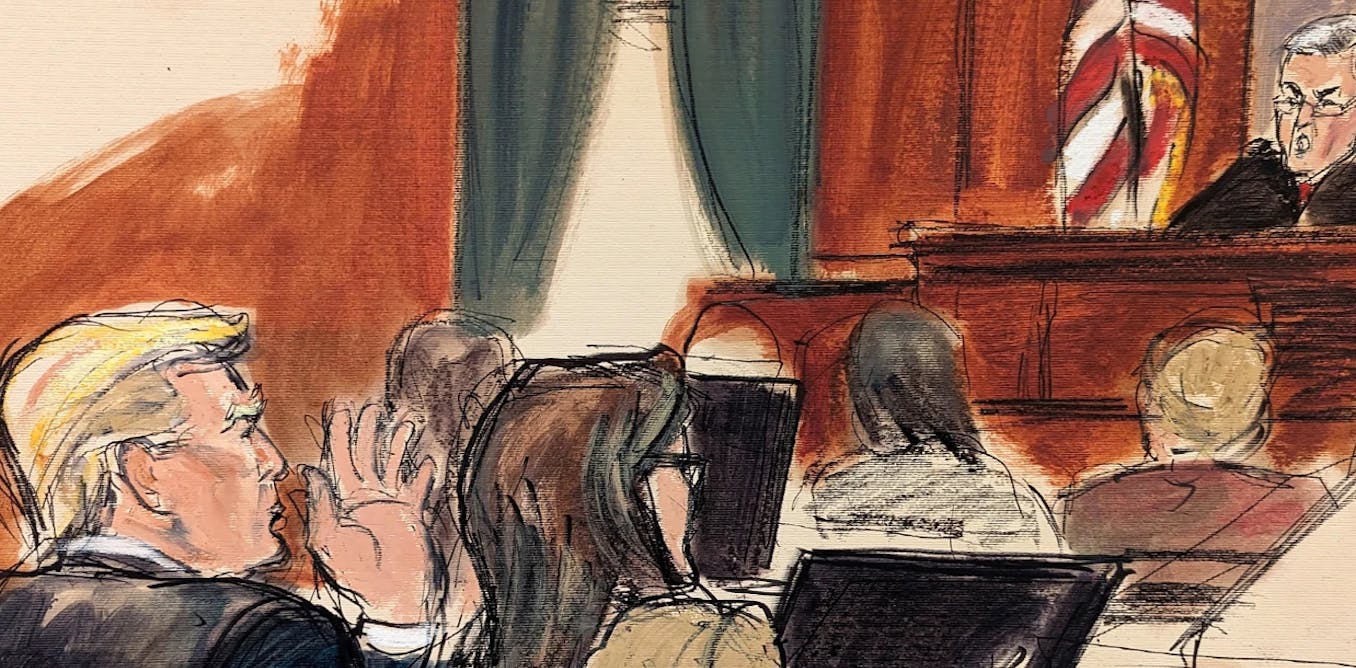 Former President Donald Trump is in court again, this time in his second trial for defamation of writer E. Jean Carroll. In the first trial, which ended in May 2023, a federal jury found Trump had “sexually abused” her and defamed her when he denied her allegations and ordered him to pay US$5 million in damages. A jury in this trial will determine whether he needs to pay more for additional defamation, and how much.U.S. District Judge Lewis Kaplan has spoken to both Trump and Alina Habba, Trump’s chief lawyer in this case, about their conduct in the courtroom – Trump for speaking out loudly from the defense table and Habba for apparently disregarding general principles of practicing law.
Continued here
|
 S40 S40Could a court really order the destruction of ChatGPT? The New York Times thinks so, and it may be right   On Dec. 27, 2023, The New York Times filed a lawsuit against OpenAI alleging that the company committed willful copyright infringement through its generative AI tool ChatGPT. The Times claimed both that ChatGPT was unlawfully trained on vast amounts of text from its articles and that ChatGPT’s output contained language directly taken from its articles.To remedy this, the Times asked for more than just money: It asked a federal court to order the “destruction” of ChatGPT.
Continued here
|
 S41 S41 S42 S42 S43 S43Cecilia Atim Ogwal: a fearless Ugandan politician who spoke her mind and challenged conventions  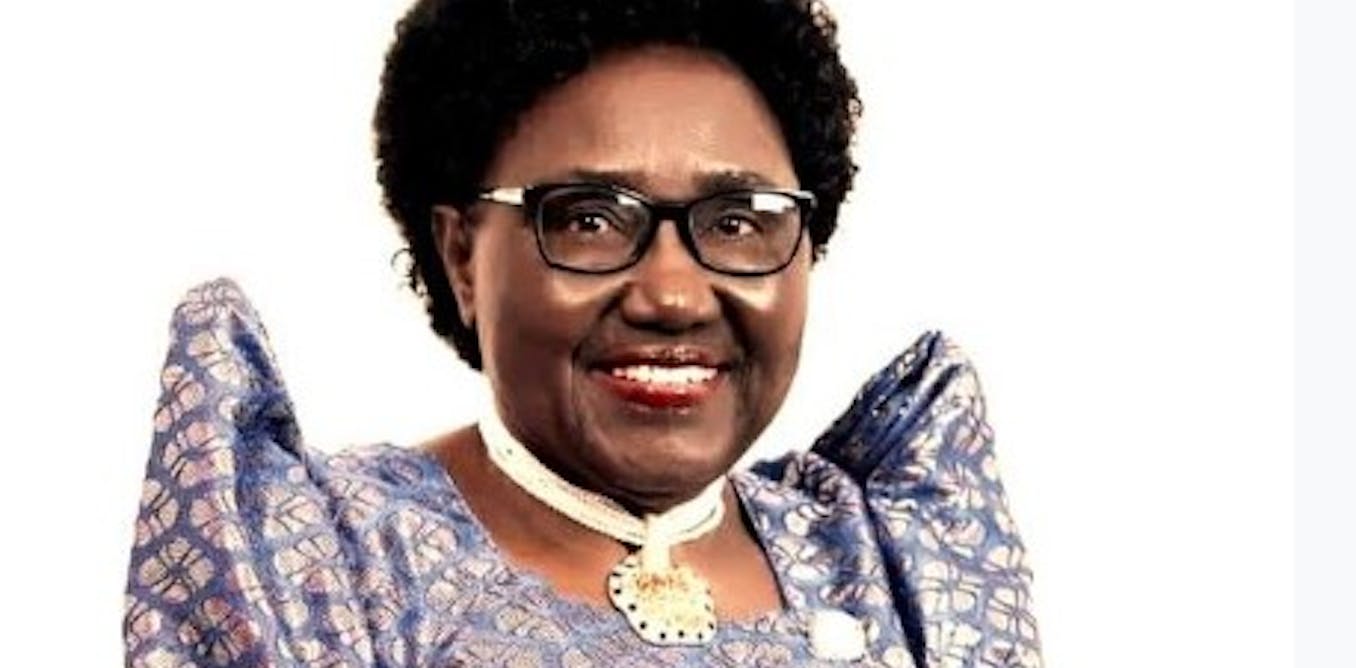 Cecilia Barbara Atim Ogwal, one of Uganda’s longest-serving female legislators, passed away on 18 January 2024 at the age of 77.Ogwal was regarded as a trailblazer, one of the strongest, most charismatic women leaders in the opposition, and a staunch defender of multipartyism, democracy and human rights. Known for her toughness, she was unafraid to stand up to male leaders in the ruling party and even within her own party. Hence she came to be known as the “iron lady” in Uganda.
Continued here
|
 S44 S44Spreadsheet errors can have disastrous consequences - yet we keep making the same mistakes   Spreadsheet blunders aren’t just frustrating personal inconveniences. They can have serious consequences. And in the last few years alone, there have been a myriad of spreadsheet horror stories. In August 2023, the Police Service of Northern Ireland apologised for a data leak of “monumental proportions” when a spreadsheet that contained statistics on the number of officers it had and their rank was shared online in response to a freedom of information request.
Continued here
|
 S45 S45Gaza: high numbers of journalists are being killed but it's hard to prove they're being targeted   Wael Dahdouh, one of the most well-known faces of Palestinian journalism in the Gaza conflict, has this week started medical treatment in Qatar. Dahdouh was wounded in December in an Israeli drone strike that killed his camera operator.Al-Jazeera’s Gaza bureau chief has also lost his wife, two children and a grandchild in an Israeli raid that hit his home. This was followed by the loss of another son Hamza, also an Al-Jazeera journalist, when his car was hit by an Israeli missile while on a reporting trip.
Continued here
|
 S46 S46 S47 S47Women still face gender inequalities at work post-pandemic   The COVID-19 pandemic brought the longstanding economic inequalities between women and men into sharp focus. From the onset of the pandemic, up until the summer of 2022, economic gender gaps continued to widen. Lockdowns and economic uncertainties created a perfect storm, leading to job losses and reduced opportunities for women in the workforce. The increased burden of caregiving responsibilities placed an additional strain on women, often forcing them to make difficult choices between their careers and family obligations.
Continued here
|
 S48 S48Animals see the world in different colours than humans - new camera reveals what this looks like   If you’ve ever wished you could see the world though the eyes of another animal, we have good news for you. We also wondered about that and, being scientists who specialise in colour vision, have created a solution: a camera system and software package that allows you to record videos in animal-view colours.Many animals, including bees, birds and even mammals like reindeer and mice can perceive ultraviolet light. Indeed, the lack of UV-sensitivity in humans is more of an exception than the rule. At the other end of the visible light spectrum, human eyes have receptors that are sensitive to red while many animals – including bees, mice and dogs – are just as blind to red as we are to ultraviolet light.
Continued here
|
 S49 S49What can we learn from the history of pre-war Germany to the atmosphere today in the U.S.?   The Guardian recently published an interview with U.S. Sen. Bernie Sanders about what happens if Donald Trump wins this year’s presidential election in the United States. The challenge the U.S. faces, Sanders said, “is to be able to show people that government in a democratic society can address their very serious needs. If we do that, we defeat Trump. If we do not, then we are the Weimar Republic of the early 1930s.”
Continued here
|
 S50 S50Two charts that reveal a key weakness in Trump's reelection bid   Donald Trump’s win in New Hampshire’s Republican primary on January 23, a week after his decisive victory in the Iowa caucuses, means that he is almost certain to be the Republican nominee for the US presidential election in November 2024. All US presidential elections are different, but a renewed contest between Joe Biden and Trump is rather unusual.It is rare for the same candidates to be nominated by their parties to run on two separate occasions. The last time it happened was in 1956, when the Republican president, Dwight Eisenhower, defeated Democrat Adlai Stevenson for the second time in a row.
Continued here
|
 S51 S51Donald Trump and the 'madman theory' of foreign policy   With Donald Trump now looking more and more likely to be the Republican nominee for November’s presidential election, the former president is now making the case that among other things, he would be much more effective than the incumbent, Joe Biden, in areas such as foreign policy. For Trump’s supporters it is his unpredictable and risky nature that has led to some of his biggest foreign policy successes. To his detractors he comes across as dangerous and unpredictable. Trump certainly has leaned in to the “madman theory” of foreign policy – the idea that an unpredictable and irrational leader would have an advantage in international bargaining. But has Trump’s impulsiveness really been effective – or has it been destabilising?
Continued here
|
 S52 S52Swimming pools could slash bills by harvesting heat from servers - here's how to make it work   My teenage son regularly complains about his room being too warm, even during winter. While the rest of the house is at a comfortable temperature, the video game PC he plays emits a significant amount of heat. A high-spec computer like his typically has a power of more than 800 watts. That’s enough to boil one litre of water from room temperature in less than eight minutes. So at scale, computer data processing centres are a massive, and predominantly untapped, source of heat or thermal energy.
Continued here
|
 S53 S53 S54 S54One in twenty people has no sense of smell - here's how they might get it back   During the pandemic, a lost sense of smell was quickly identified as one of the key symptoms of COVID. Nearly four years later, one in five people in the UK is living with a decreased or distorted sense of smell, and one in twenty have anosmia – the total loss of the ability to perceive any odours at all. Smell training is one of the few treatment options for recovering a lost sense of smell – but can we make it more effective?Smell training is a therapy that is recommended by experts for recovering a lost sense of smell. It is a simple process that involves sniffing a set of different odours – usually essential oils, or herbs and spices – every day.
Continued here
|
 S55 S55 S56 S56AI advances have left news publishers fearing for their business models - new research  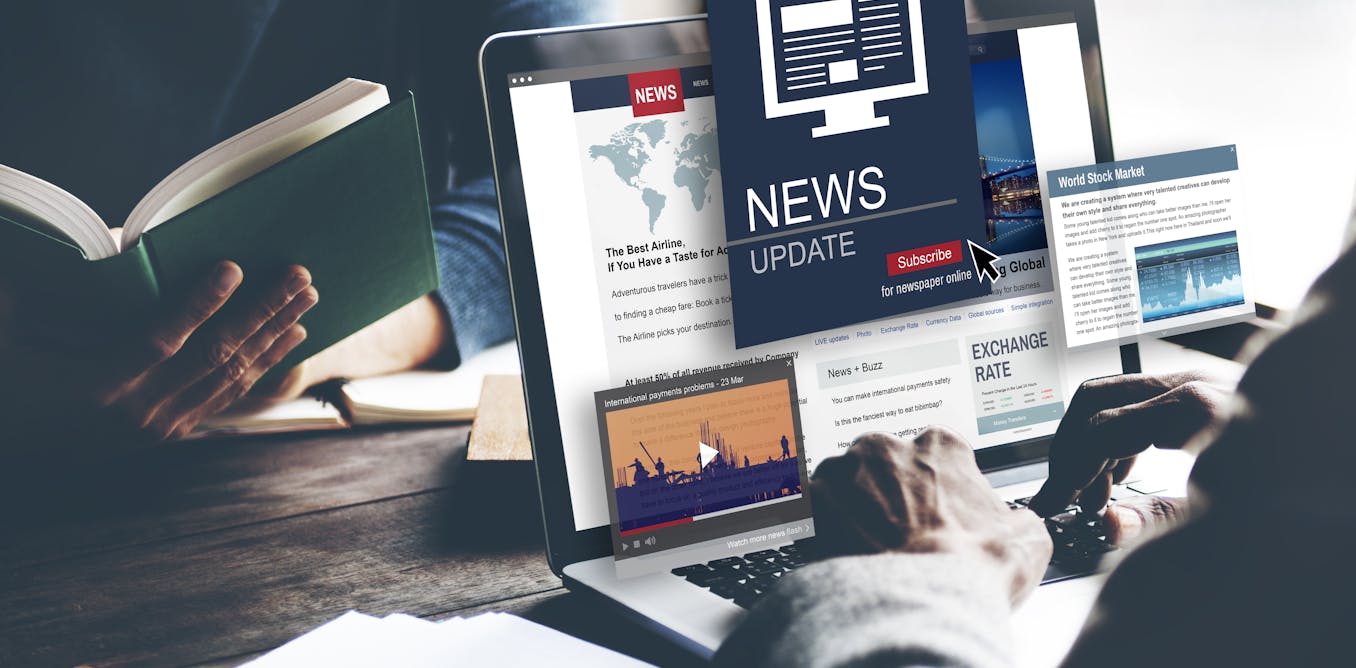 News organisations are bracing for serious disruptions as a result of the increasing influence of artificial intelligence (AI) – both on the way that they work and the way their audiences consume news. As part of our latest journalism trends report, my colleagues and I at the Reuters Institute for the Study of Journalism found that less than half (47%) of 314 editors, CEOs and other digital leaders from more than 50 countries say they are confident about journalism’s prospects in 2024.The report details a tough period for the news industry over several years. A decline in online advertising, slowing growth in subscriber numbers and rapidly declining referrals from social media have fed into dramatic falls in revenue.
Continued here
|
 S57 S57 S58 S58Setting low-stakes challenges can help you reach your bigger goals in 2024   It’s the end of January – have you stuck with your new year resolutions? If so, you’re in the minority. Humans are generally pretty poor at sustaining big behavioural changes all in one go, which is why, according to some estimates, 80% of people fail to keep their resolutions by February. We are much better at accomplishing small changes and building them up over time. “Couch to 5k” programmes are a good example of this, helping people build up their running fitness one step at a time. This year, you may have seen “in and out” lists all over TikTok. Instead of a massive life overhaul, young people are placing small behaviour changes on the same level with trying new foods or fashion trends. Some are also urging fun or low-stakes resolutions, like trying more pasta shapes.
Continued here
|
 S59 S59How to read a Supreme Court case: 10 tips for nonlawyers   From gun rights to the availability of the abortion pill to at least one – and possibly a second – constitutional case involving former President Donald Trump, the U.S. Supreme Court is considering cases this term that may result in momentous decisions in 2024. If you follow news coverage of these and other cases, you may want to read the Supreme Court decisions for yourself to fully understand what was decided, why and how. But when you read a Supreme Court case for the first time, the legal language, unique formatting and structure can be daunting, like looking at a giant rock face and not having any clue about how you climb to the top.
Continued here
|
 S60 S60What UAW backing means for Biden - and why the union's endorsement took so long   The United Auto Workers has endorsed President Joe Biden’s bid for reelection in 2024. “Joe Biden has earned it,” said union president Shawn Fain on Jan. 24 as he announced the union’s decision to back the incumbent candidate.The Conversation U.S. asked Marick Masters, a Wayne State University scholar of labor, politics and business issues, to explain why the UAW waited until now to endorse Biden and why this endorsement matters.
Continued here
|
 S61 S61Gaza update: Netanyahu calls for 'total victory' as International Court of Justice ponders genocide accusations against Israel   No sooner were the international media reporting this week that Israel had proposed a pause of up to two months in its assault on Gaza to allow for a prisoner-hostage exchange and the delivery of humanitarian aid, than Benjamin Netanyahu declared there would be no ceasefire and that “we will not stop fighting until total victory”.The Israeli prime minister was commenting as he paid tribute to 24 soldiers of the Israel Defense Forces (IDF) who were killed in the fighting with Hamas on January 22. Netanyahu has also rejected out of hand the idea of a two-state solution to the conflict as an “existential danger to Israel”. There will, he says, be no Palestinian state.
Continued here
|
 S62 S62What do I need to know before investing in ETFs and what are the risks?   Exchange-traded funds (ETFs) are tradeable units that have different types of investments all bundled by a professional fund manager into a single investment. In the “bundle” you might have shares, bonds, property investment and other types of investments. That means people who hold ETFs are investing in a diverse collection of assets across various sectors, markets, companies and regions. With a single ETF you can own a piece of multiple companies or bonds.
Continued here
|
 S63 S63J.M. Coetzee's provocative first book turns 50 this year - and his most controversial turns 25  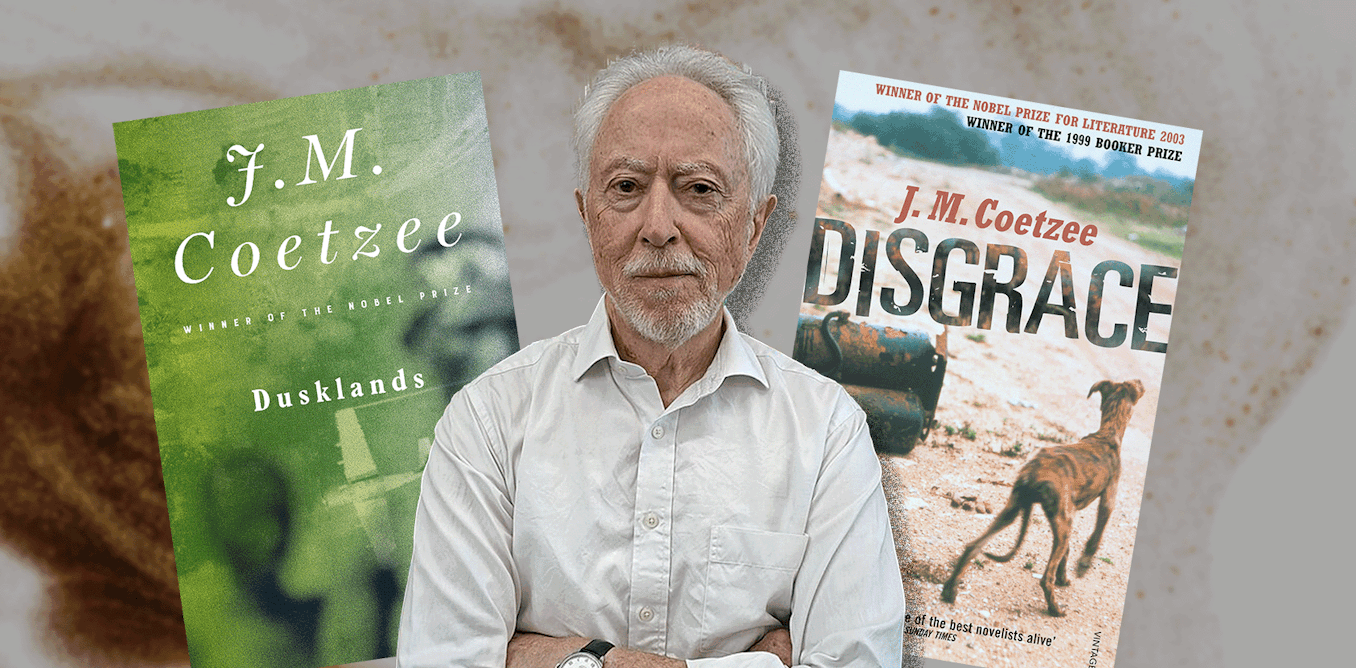 J.M. Coetzee, one of the leading novelists of our age, turns 84 this year. Last year, he published The Pole and Other Stories, his 18th book (excluding volumes of criticism, commentary, letters and translations). Its flowering of mature style confirms that this writer remains at the top of his game. Coetzee celebrates another milestone this year: 50 years of publishing serious, provocative fiction. His work is always formally daring, brave in its social critique and its refusal to play by the rules.
Continued here
|
 S64 S64Community-controlled schools create better education outcomes for First Nations students  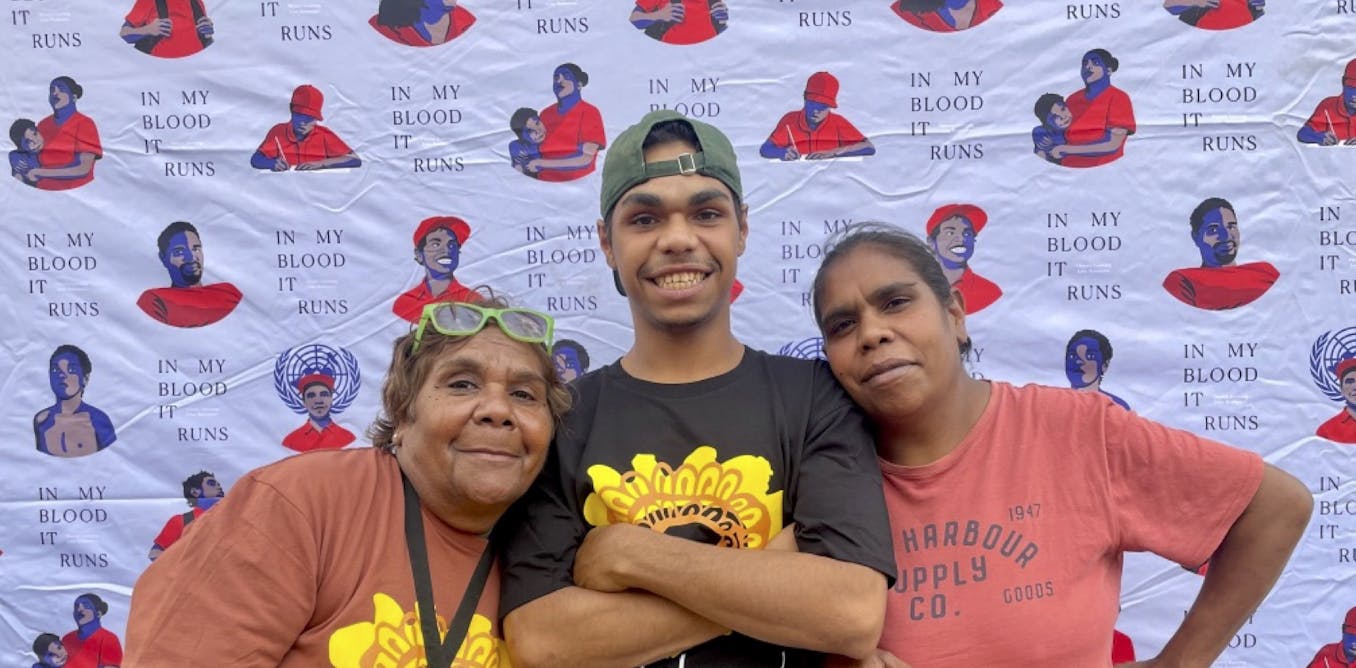 Samara is a co-founder and director at the National Indigenous Youth Education Coalition who partnered with the In My Blood it Runs production team to launch the Learn Our Truth campaign.In Australia, more than a dozen independent, community-controlled First Nations schools were set up in the 1970s and ‘80s. These schools, some still in operation, offered culturally and linguistically relevant education to First Nations students reflecting Indigenous ways of knowing, being and doing.
Continued here
|
 S65 S65The first flowers evolved before bees - so how did they become so dazzling?   Colourful flowers, and the insects and birds that fly among their dazzling displays, are a joy of nature. But how did early relationships between flower colour and animal pollinators emerge?In a study published in Proceedings of the Royal Society, we have unravelled this mystery by analysing the visual environments in which the ancestors of today’s bees foraged from flowers.
Continued here
|
 S66 S66Flying foxes pollinate forests and spread seeds. Here's how we can make peace with our noisy neighbours   Noel D. Preece is lead scientist for the national recovery team for the endangered spectacled flying fox, and a non-executive director of Terrain NRM Ltd. He is also a director of a specialist environmental consulting firm, Biome5 Pty Ltd.Flying foxes. Megabats. Fruit bats. Whatever name you choose, these fox-faced creatures are remarkable. Our four species help pollinate eucalyptus trees in eastern Australia, spread the seeds of rainforest trees, and make our summer skies spectacular. They’re some of the largest bats in the world.
Continued here
|
 S67 S67The emergence of JN.1 is an evolutionary 'step change' in the COVID pandemic. Why is this significant?   Since it was detected in August 2023, the JN.1 variant of COVID has spread widely. It has become dominant in Australia and around the world, driving the biggest COVID wave seen in many jurisdictions for at least the past year.The World Health Organization (WHO) classified JN.1 as a “variant of interest” in December 2023 and in January strongly stated COVID was a continuing global health threat causing “far too much” preventable disease with worrying potential for long-term health consequences.
Continued here
|
 S68 S68 S69 S69Afcon's decision to allow 24 countries to play is paying off - and having dramatic repercussions   By the end of the group stage, the 34th Africa Cup of Nations (Afcon) was one of the most exciting and memorable Afcon tournaments in recent memory. This was particularly true of the performances of the continent’s best players on the field.As a scholar of sports communication with a focus on African football, I’ve followed developments with interest, notably the 2021 decision to increase the number of national teams in the final stage from 16 to 24.
Continued here
|
 S70 S70
 |
TradeBriefs Publications are read by over 10,00,000 Industry Executives About Us | Advertise Privacy Policy Unsubscribe (one-click) You are receiving this mail because of your subscription with TradeBriefs.
Our mailing address is GF 25/39, West Patel Nagar, New Delhi 110008, India |










































































































































































































